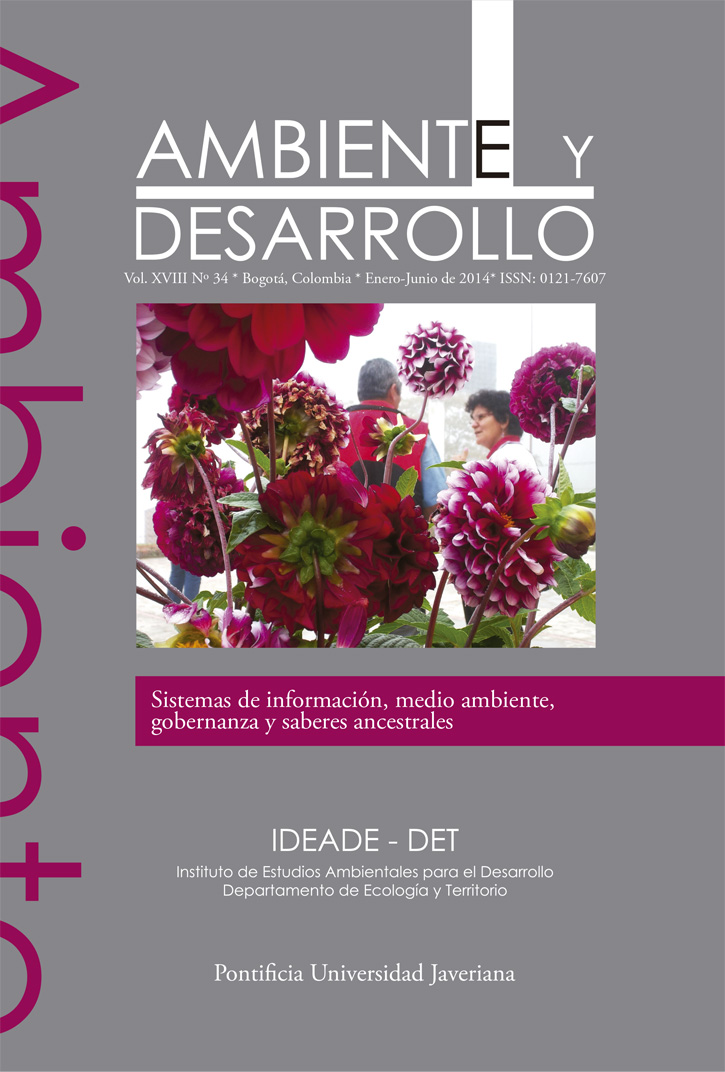Resumen
En el artículo se describe cómo algunas comunidades campesinas del Tequendama y el Alto Magdalena lograron establecer un diálogo con dos instituciones de educación superior: La Corporación Universitaria Minuto de Dios (Colombia) y la Universidad de Algoma (Canadá). El tema propuesto para el diálogo fueron los saberes ancestrales de los campesinos y sus posibles implicaciones en el ámbito académico; también las repercusiones sociales, económicas y políticas que estos saberes tienen para los campesinos y sus organizaciones. Esta experiencia se presenta como alternativa metodológica para validar conocimientos y prácticas rurales. Las prácticas y saberes titularían inicialmente a los propios campesinos y serían ellos, en compañíade las comunidades e investigadores universitarios, quienes preparen a los futuros
profesionales del campo colombiano.
Ambiente y Desarrollo se encuentra registrada bajo la licencia Creative Commons Reconocimiento 4.0 Internacional. Por lo tanto, esta obra se puede reproducir, distribuir y comunicar públicamente en formato digital, siempre que se reconozca el nombre de los autores y a la Pontificia Universidad Javeriana. Se permite citar, adaptar, transformar, autoarchivar, republicar y crear a partir del material, para cualquier finalidad (incluso comercial), siempre que se reconozca adecuadamente la autoría, se proporcione un enlace a la obra original y se indique si se han realizado cambios. La Pontificia Universidad Javeriana no retiene los derechos sobre las obras publicadas y los contenidos son responsabilidad exclusiva de los autores, quienes conservan sus derechos morales, intelectuales, de privacidad y publicidad.
El aval sobre la intervención de la obra (revisión, corrección de estilo, traducción, diagramación) y su posterior divulgación se otorga mediante una licencia de uso y no a través de una cesión de derechos, lo que representa que la revista y la Pontificia Universidad Javeriana se eximen de cualquier responsabilidad que se pueda derivar de una mala práctica ética por parte de los autores. En consecuencia de la protección brindada por la licencia de uso, la revista no se encuentra en la obligación de publicar retractaciones o modificar la información ya publicada, a no ser que la errata surja del proceso de gestión editorial. La publicación de contenidos en esta revista no representa regalías para los contribuyentes.


